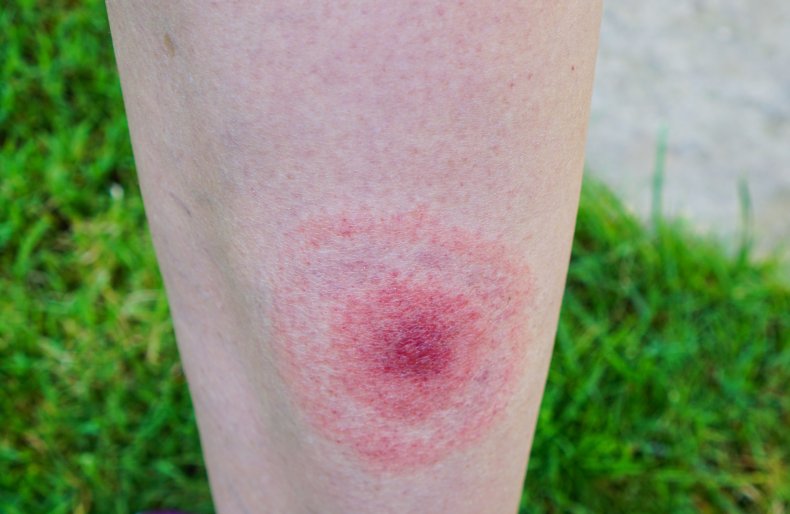The promise of anti-microbiota vaccines in reducing tick-borne illness
Ticks have long been a scourge of the summer months as vectors of multiple serious illnesses including Lyme disease. Now, new research shows that an innovative vaccine could impact the prevalence of Lyme-causing bacteria in the insects.
Published in the journal Microbiome last month, the French study looked at a new vaccine given to mice that targets the gut microbiota (the microbes including bacteria living in ticks’ guts) to reduce the prevalence of Borrelia afzelii, the bacterium that causes Lyme in Europe.
The researchers vaccinated mice to create antibodies against another “Trojan horse” bacteria in an effort to influence ticks’ gut microbes.
They found that the ticks that bit the vaccinated mice had fewer Lyme-causing bacteria in their gut microbiota than those that bit the unvaccinated animals.
"The discovery is a break with current paradigms on vaccinations," Alejandro Cabezas-Cruz, principal investigator at the French National Institute for Research into Agriculture, Food and Environment (INRAE), told Euronews Next.
He added that scientists have struggled with developing vaccines against vector-borne illnesses such as Lyme disease or malaria which are transmitted by insect bites and hopes that this could be a step towards eradicating vector-borne illnesses in the future.
John Aucott, the director of the Lyme Disease Research Centre at Johns Hopkins University in the US, told Euronews Next that the study, which he was not involved in, was interesting but noted it was in the early phases.
He pointed out that there are also vaccines being studied in mice to prevent the spread of bacteria to ticks.
"The issue with these kinds of vaccines for the mouse is how do you get it into all the mice? It's a tough challenge to figure out how you would actually implement it in over large thousands of square miles of mouse habitats. So, that's the practical aspect. But that's a long way down the road," he said.
Scientists Develop Game-Changing Vaccine Against Lyme Disease Ticks
by: Jess Thomson, Science Reporter, Newsweek
A major step in battling Lyme disease and other dangerous tick-borne viruses may have been taken as researchers announced they have developed a vaccine against the ticks themselves.
Rather than combatting the effects of the bacteria or microbe that causes Lyme disease, the vaccine targets the microbiota of the tick, according to a paper published in the journal Microbiota on Monday.
The research by the French National Research Institute for Agriculture, Food and the Environment, in collaboration with the National Social Security Administration and the National Veterinary School of Alfort, found a way to use a harmless bacteria as a sort of Trojan horse to stimulate the production of antibodies that interact with the microbiota of the tick, preventing the tick from being colonized by the bacteria that cause Lyme disease.
Lyme disease is a condition caused by the Borrelia bacteria, including Borrelia burgdorferi, Borrelia mayonii and Borrelia afzelii, and is usually spread by bites from ticks. In France, where the research was carried out, up to 20 percent of ticks carry Lyme disease, and since 2017, more than 72,000 tick bites have been reported to French health authority Santé publique France.
In the study, the authors describe how the new vaccine prevents the ticks from being a home to the disease-causing bacteria. Mice that were injected with the vaccine were found to cause their ticks to be protected against colonization by Borrelia bacteria but did not stop the mouse from experiencing symptoms of the disease.
"These findings suggest that Borrelia is highly sensitive to tick microbiota perturbations and that departure from the modulation induced by the pathogen in the vector microbiota pose a high cost to the spirochete," the authors wrote in the paper.
"Network analysis emerges as a suitable tool to identify emergent properties of the vector microbiota associated with infection-refractory states. Anti-microbiota vaccines can be used as a tool for microbiota perturbation and control of important vector-borne pathogens."
Ticks transmit disease via their bites, allowing bacteria and other pathogens to enter the bloodstream as they inject their feeding tubes.
"First, their need to feed on blood and their ability to adapt to different environments. Additionally, ticks can associate and transmit various pathogens through their blood meals, making them effective vectors. Another important factor that makes ticks good vectors is their complex saliva, which assists pathogens in their transmission. Finally, they have a longer lifespan than other vectors, such as mosquitoes. Some species of ticks can live for several years."
It is hoped by the researchers to be a one-two punch of discovery, both in the combatting of Lyme disease and other tick-borne infections, and as a whole new form of vaccine.

"By affecting the development of pathogens in vectors, this vaccine could help reduce vector competence and thus reduce the transmission of diseases, such as Lyme," Cabezas-Cruz said. "Although the research, regulation and approval process can take about 10 years for humans, it is possible that it will be applied more quickly in animals, especially in livestock. This promising approach offers new perspectives for the prevention of vector-borne diseases."
They also hope that the vaccine could be used to treat diseases passed on by other vectors, like mosquitoes.
"These antimicrobiota vaccines are interesting for other pathogens because they specifically target the vector microbiota," Cabezas-Cruz said. "As the microbiota is essential for many vector-borne pathogens, this approach could be used to target a wide range of diseases, whether caused by viruses, parasites or bacteria.
"For example, for malaria, studies have shown that vaccinating birds with bacteria from the mosquito microbiota resulted in a strong reduction in the parasite Plasmodium sp. in mosquitoes, potentially limiting disease transmission."
In the meantime, a vaccine against the bacteria that cause Lyme disease is also in the works, though it may not be ready for several years. There was one vaccine for the disease available in the 1990s, but it was pulled after low consumer demand.











